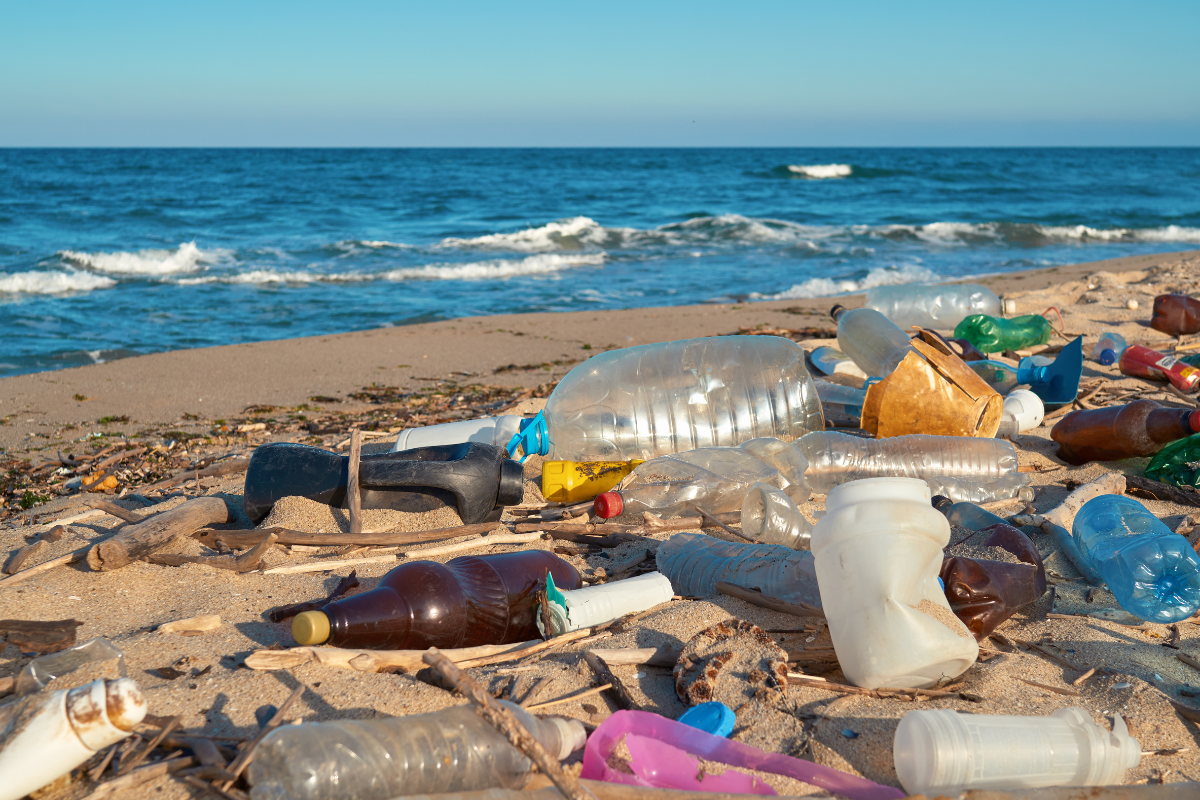
The Geneva talks ended without agreement, highlighting sharp rifts on production caps, leaving no clear picture of when they might resume. | Maryshot/Shutterstock
After nearly two weeks of tense negotiations, the world’s attempt to forge the first legally binding treaty to end plastic pollution collapsed in Geneva, leaving delegates exhausted, civil groups dismayed and the path forward uncertain.
The talks, known as the resumed fifth session of the Intergovernmental Negotiating Committee, or INC-5.2, were meant to deliver a final text for adoption as a global framework to curb plastic waste. Instead, the 10-day meeting ended in chaos early Friday, with negotiators unable to bridge a divide over whether the treaty should contain limits on virgin plastic production.
Luis Vayas Valdivieso, the Ecuadorian diplomat chairing the process, adjourned the session after all-night talks failed to produce consensus. He promised negotiations would resume “at a later date,” but offered no clarity on timing. Delegates responded with tepid applause after an effort many had hoped would mark a breakthrough.
Divide over production
At the heart of the collapse was a dispute that has dogged the talks since 2022: Should the treaty address the full life cycle of plastics, including production, or focus narrowly on recycling, design and waste management.
Nearly 100 countries, including members of the European Union, small island states and much of Africa, argued that without production caps there can be no credible strategy. The Organisation for Economic Co-operation and Development projects that output will triple by 2060 if left unchecked.
Fossil fuel producers, including Gulf states, Russia and the US, rejected binding limits on plastics derived from crude oil, natural gas and coal. They pushed for voluntary measures emphasizing product design and waste handling.
The chair’s compromise draft, which was revised through the final hours, contained numerous bracketed options and no dedicated section on production. Panama called the text “repulsive,” while EU Commissioner Jessika Roswall said a weak agreement “serves no one.”
Frustration at the close
The final plenary reflected the depth of anger. France’s ecology minister Agnès Pannier-Runacher said she was “disappointed and enraged” by what she described as a chaotic process that allowed oil-aligned countries to block progress. Colombia’s delegate Haendel Rodriguez accused “a small number of states” of simply not wanting an agreement.
India and Uruguay confirmed no consensus had been reached, and Cuba called the outcome “a historic missed opportunity,” according to news agency AFP.
The failure echoed last December’s inconclusive round in Busan, South Korea, marking another missed deadline for a treaty originally slated for completion in 2024 under the UN Environment Assembly’s mandate.
United Nations Executive Director Inger Andersen said red lines had at least been clarified and that “significant progress was made.” However, she conceded the outcome was far from what was needed, adding, “plastic pollution will not stop and therefore our work will not stop.”
Civil groups were harsher. David Azoulay of the Center for International Environmental Law, called the talks “an abject failure,” urging a restart rather than a repeat of the same process.
Calls for a reset
The collapse fueled debate over whether consensus rules are workable. Every country must agree for text to advance, giving chemical producers leverage to block provisions they oppose.
South Africa said “the current process will not work.” Switzerland called for a “time-out” and questioned whether plastics could be folded into existing UN conventions. Palau, speaking for small island states, argued the process should continue but with stronger political leadership.
Greenpeace’s Graham Forbes said negotiators “cannot continue to do the same thing and expect a different result,” urging countries to consider voting rather than consensus. The Youth Plastic Action Network, the only NGO permitted to speak before comments were cut off at the request of the US and Kuwait, appealed for recognition of Indigenous and community voices.
What comes next
For now, no date has been set for a resumed session. The UN Environment Assembly mandate requires a treaty to be delivered, but after two failed attempts in nine months, doubts are growing about whether the process can succeed under its current design.
Supporters of a robust deal argue the Geneva collapse must galvanize, not paralyze. African states demanded “a clear way forward.” The EU called the draft text “a step forward” and pledged to keep pushing for a binding agreement. China described the setback as part of a long marathon.

